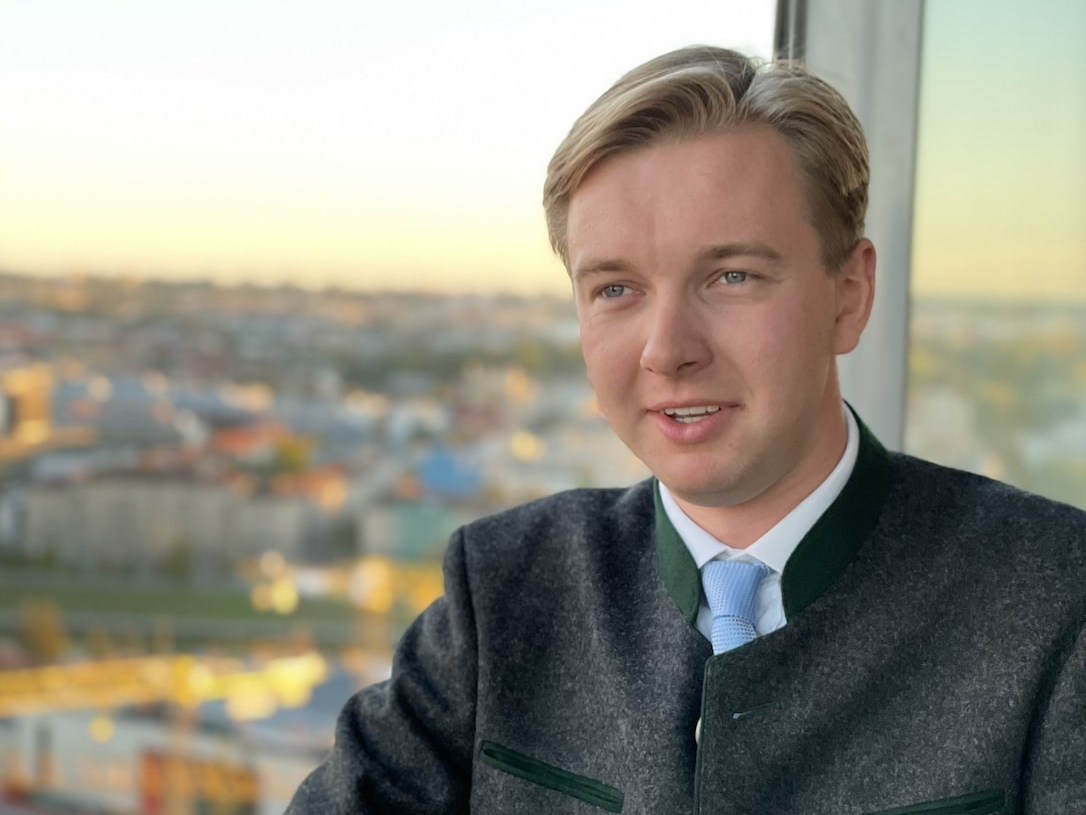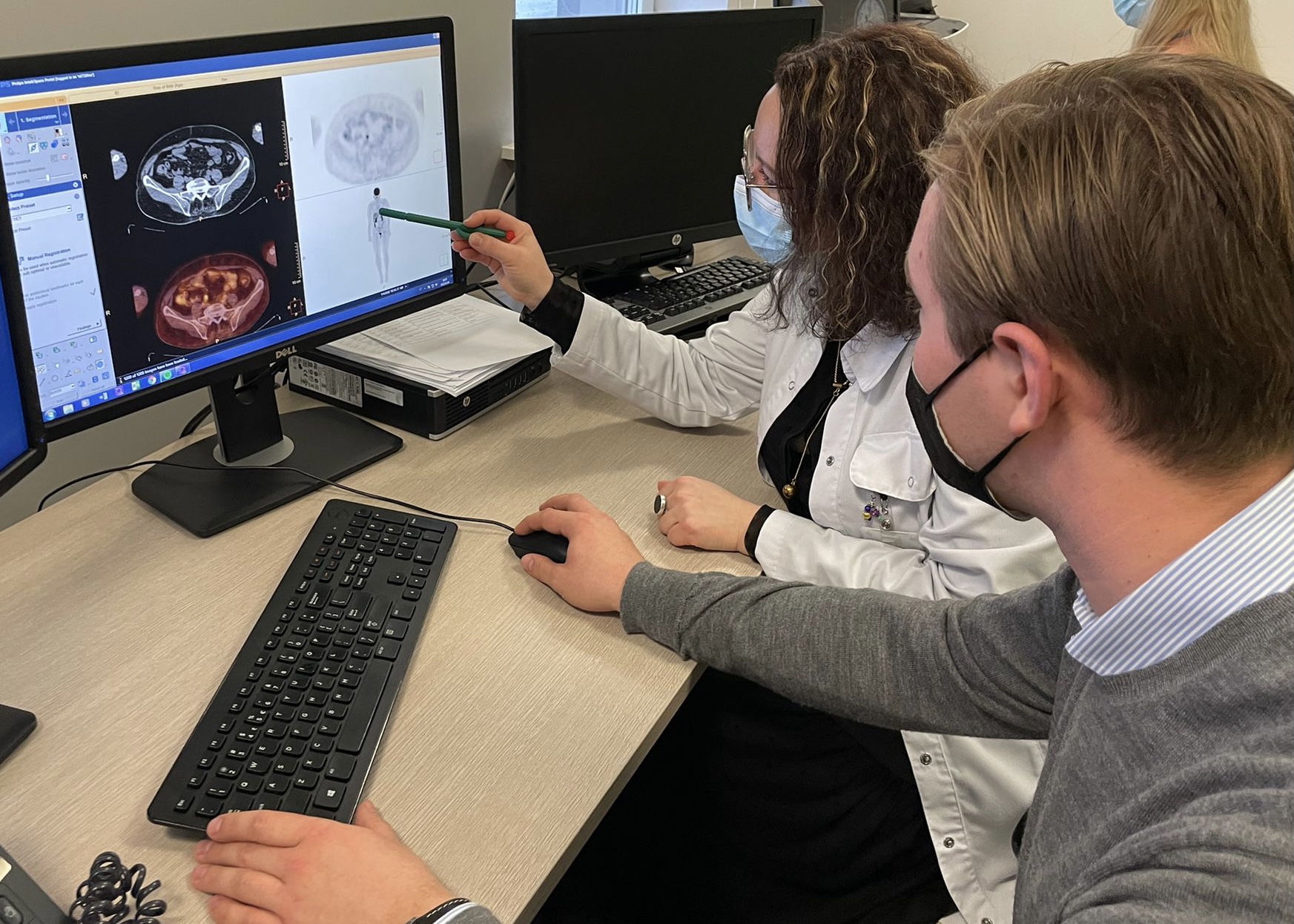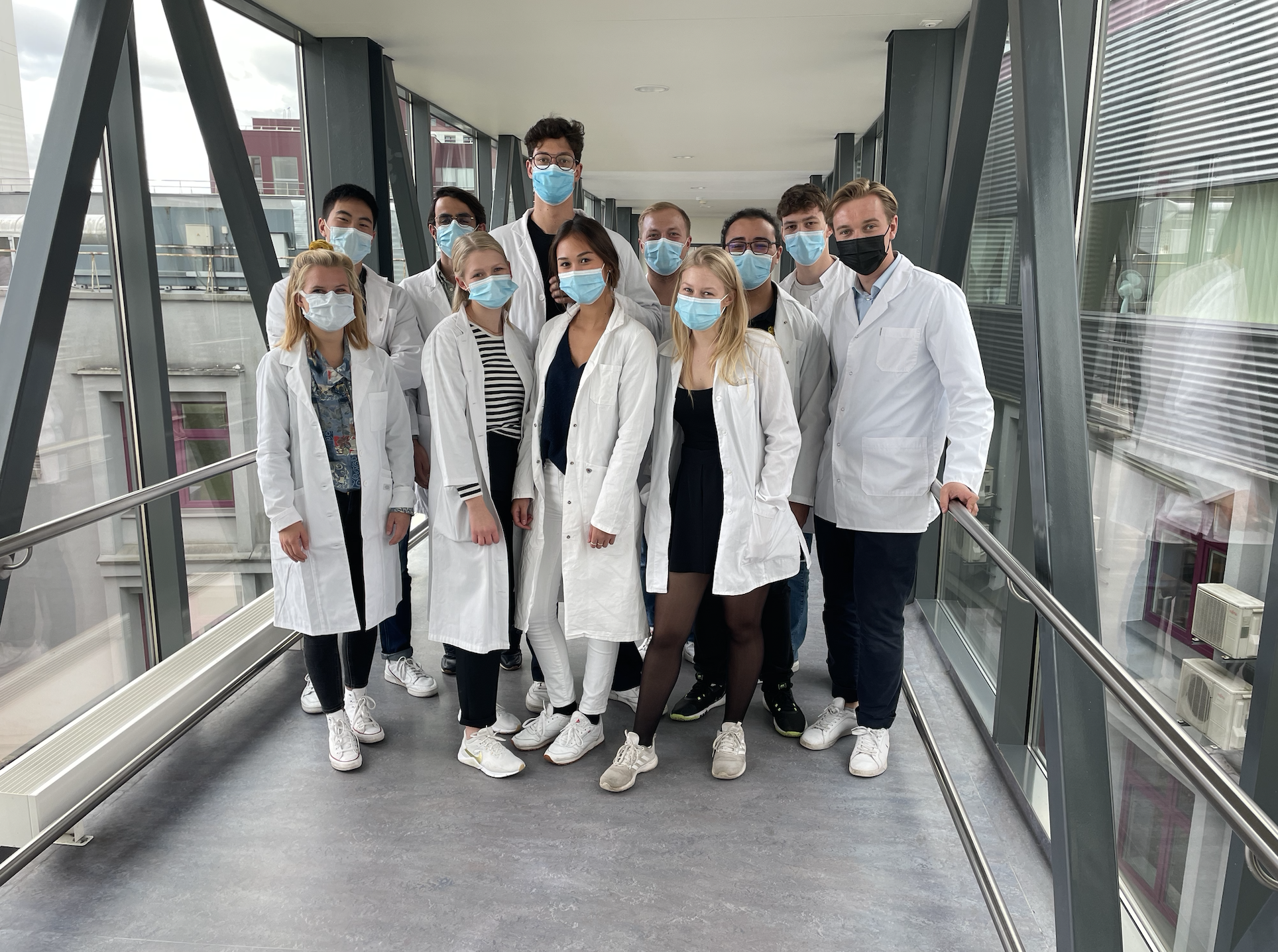 Damian Mialkowskyj. Photo from Damian Mialkowskyj's archive
Damian Mialkowskyj. Photo from Damian Mialkowskyj's archive
“There is no better place to study in Europe,” said Damian Mialkowsky, a 3rd year medical student. During the conversation, he repeated several times that he is proud of Vilnius University Faculty of Medicine he is studying at. The fact that these are not only nice words is confirmed by his activities in the Foreign Students Representation, active involvement in various initiatives.
As Damian Mialkowsky had studied remotely for some time because of the pandemic situation, he shared his thoughts on the changes and challenges students had to cope as well as the advantages and disadvantages of distance learning.
What are the main changes, that, in your opinion, concerned students during the COVID-19 pandemic?
The face-to-face working method was very successfully (for the short time) converted to distance work within a week. The community had to learn to deal with a sudden 180 degree turn in our study life. We had to get used to the fact that everything now took place in digital format. No everyday student life. No continuation of the daily routine. This brought a lot of trouble and frustration. We had to upgrade technically, to create the hardware to continue our studies at our home office. Scattered all over the world from Brazil to the USA over India and Singapore, we met in the digital school to continue with the lessons as best as possible.
The motto was to carry on: It took a while until everyone got used to the new format, until the processes found a routine. Everyone had to relearn how to communicate in a new way. To interpret conversations without face and emotions brought many difficulties. The constant overstimulation caused by digital work combined with little physical activity brought many to the limits of their capabilities. We had to learn to develop an understanding for a counterpart that we could neither see nor feel physically.
What are the specific problems the students faced (and still face) during the pandemic?
The changes I have mentioned before put the individual under extreme pressure. Firstly, physically: hardly any movement, a certain deprivation of everyday life as well as constant frustration due to loss of practical reference. Secondly, the psychological component correlates with this. This frustration and social deprivation led to a general change in mood. It reduces the motivation to work and makes exciting scientific topics abstract. One quickly loses one’s drive.
Monotony is the enemy of success. If no lesson is essentially different from the other, despite differences in content, this leads to frustration and a turning away from the awareness of what one is actually striving for at that moment. This is a vicious circle.
 Damian Mialkowskyj. Photo from Damian Mialkowskyj's archive
Damian Mialkowskyj. Photo from Damian Mialkowskyj's archive
While some students say that online studies have a great advantage, others doubt. In your opinion, online or contact studies are more useful for the students?
Those opinions differ. First of all, I am glad that we were able to continue our studies successfully. New digital learning opportunities and old data collections opened up a huge spectrum of new possibilities.
New learning formats also brought efficiency with them. Lectures that were previously poorly attended, are now very popular among the students. These recordings made it possible to access and repeat them as often as necessary, regardless of time and place. Digital quizzes for regular performance reviews were not only successful in learning but also fun. Teachers in the practical seminars were particularly creative.
With the help of colleagues or the whole family, the own kitchen, playground or the university rooms became a nice alternative site of action to laboratory work. Learning videos were filmed and cut with a lot of effort and also a lot of love. The fact is: they will not replace laboratory work, but they will certainly be an opportunity to rediscover an alternative to conservative teaching.
Are there situations when students want to benefit from the pandemic situation? For example, they try to do their best in order to avoid… contact learning?
Different people have different interests. This does not only apply to students, but also to teachers and administrative staff. The fact is that the pandemic is far from over. Infection and hospitalization figures continue to rise dramatically in Europe. Thus, on the one hand, there are justified concerns about one or the other contact measure with high risk exposure. At first, this was also the main argument for discontinuing contact teaching in March 2020.
The other side is interested in training that is as practice-oriented as possible. This accepts precisely the risk of increased exposure to the virus, since the benefit of practical training with increased infection protection measures such as hygiene, mask and booster vaccination distance is higher than the risks of becoming seriously ill from SARS-CoV2 itself.
Personally, for me, it is better to be cautious than lenient. We should drive on sight and adapt the situation to the current situation. We are on the frontline of the health system. Therefore, we must also be prepared to accept certain inconveniences. This also includes the continuation of essential practical training on patients, taking into account all possible protective measures. I appeal to contribute to the protection of all through one's own actions. Corona is undoubtedly the cause of the current excess mortality of the population. In the near future, the cause should not be poorly trained medical professionals. Health policy equals security policy. Ensuring excellent education is therefore the first priority.
What else concerns you when speaking about Medical faculty of Vilnius university? What other problems do you notice here?
I am very proud of this institution. My dream is to have more and more linked structures uniting national and international students equally. Unfortunately, I see considerable additional work on the part of the teachers and administration due to the bilingual, double administrative work. This should be fairly compensated!
As a member of the Faculty Council, I would like to see a return to a lively culture of discussion. Only by exchanging opinions we can succeed in better understanding of the other side. This would also be an excellent opportunity to compare interests more with representatives of our teaching bodies such as institutes and hospitals. Where else but in the highest governing body, the heart ventricle of our faculty, should these things be discussed! I will continue to work actively for this.
You have mentioned that you are proud of VU MF. What makes you happy while studying here?
Lithuania is a beautiful and culturally rich country. Especially the capital Vilnius is a growing metropolis, which is particularly attractive for young people. I am very proud to be part of a very strong social network among us students. We support each other in the learning process and have a great time together after classes and studies. The interaction between teachers and students are very collegial. As soon as you have a question, you can ask it by email and usually get an answer within a few hours. Everyone is interested in getting the best possible education. This is what drives the team spirit in our courses.
If you could turn the time back, would you still choose to study in Medicine faculty of Vilnius
University? Why?
There is no better place in Europe to study at the recent modern standards. Especially the excellent interdisciplinary cooperation of our institutes creates a great environment for teaching and research. Dedicated professors try to incorporate as much practice as possible, especially in clinical teaching. As soon as there is an exciting clinical case of a patient, we put on our white coats and go to the station. At the patients beds we are allowed to examine the patient ourselves and help with therapy measures. This shows us how we can apply what we have learned in theory in practice.
Even after the regular lessons, many teachers invite us to visit their facilities. With the Research and Innovation Centre near the university hospitals, which is expected to be completed in 2023, the Faculty of Medicine will become a global player in the medical field. This fills me with particular pride. I hope that many following generations can grow in this place, proudly wearing their stethoscope as member or alumni of Vilnius Medical Faculty!
 Damian Mialkowskyj is the first on the right. Photo from Damian Mialkowskyj's archive
Damian Mialkowskyj is the first on the right. Photo from Damian Mialkowskyj's archive
